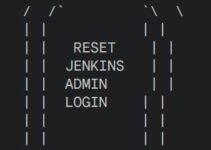DevOps is a software development methodology that focuses on collaboration, communication, and automation between software developers and IT operations teams. The goal of DevOps is to improve the speed, quality, and reliability of software delivery by breaking down the barriers between development and operations teams.
Job Responsibilities of a DevOps Engineer
In this article, we will discuss the job responsibilities of a DevOps engineer. A DevOps engineer is a professional who works at the intersection of software development, IT operations, and quality assurance. They are responsible for managing and automating the software development process, ensuring that software is delivered on time and that it meets the quality standards set by the organization. Here are some of the key job responsibilities of a DevOps engineer:
- Automating the Software Development Process: One of the primary responsibilities of a DevOps engineer is to automate the software development process. They do this by writing scripts and building tools that automate the deployment, testing, and delivery of software. The goal of automation is to reduce the amount of manual work required to deploy and test software, which reduces the risk of human error and increases the speed of software delivery.
- Implementing Continuous Integration and Continuous Delivery (CI/CD): Continuous Integration (CI) and Continuous Delivery (CD) are two key concepts in the DevOps methodology. CI involves integrating code changes into a shared repository on a regular basis, while CD involves automating the deployment of software to production. DevOps engineers are responsible for implementing CI/CD processes in their organization, which involves setting up build servers, configuring automated testing frameworks, and designing deployment pipelines.
- Managing Infrastructure as Code: Infrastructure as Code (IaC) is a practice that involves managing infrastructure using code instead of manual processes. DevOps engineers are responsible for implementing IaC in their organization, which involves writing code that describes the infrastructure that software runs on. This code is version controlled and can be used to automate the creation, configuration, and deployment of infrastructure.
- Monitoring and Logging: DevOps engineers are responsible for monitoring and logging the performance of software applications. They use tools like Nagios, Prometheus, and Grafana to monitor the health of software systems and identify issues before they become critical. They also use logging tools like Logstash and Kibana to collect and analyze log data, which helps to identify and troubleshoot issues in production environments.
- Collaboration and Communication: Collaboration and communication are key aspects of the DevOps methodology. DevOps engineers work closely with software developers, IT operations teams, and quality assurance teams to ensure that software is delivered on time and meets the quality standards set by the organization. They also collaborate with other teams to ensure that infrastructure is deployed and configured correctly.
- Security: Security is a critical aspect of the DevOps methodology. DevOps engineers are responsible for ensuring that software and infrastructure are secure and compliant with industry regulations. They implement security best practices, such as encryption, access controls, and vulnerability scanning, to protect software and infrastructure from threats.
- Disaster Recovery: Disaster recovery is another key responsibility of DevOps engineers. They are responsible for designing and implementing disaster recovery plans that ensure that software and infrastructure can be quickly restored in the event of a disaster. They also conduct regular disaster recovery testing to ensure that the plans are effective and up-to-date.
- Continuous Improvement: DevOps is a continuous improvement process. DevOps engineers are responsible for continually reviewing and improving the software development process to ensure that it is efficient, effective, and delivers value to the organization. They use metrics and feedback from stakeholders to identify areas for improvement and implement changes that improve the speed, quality, and reliability of software delivery.
In summary, DevOps engineers are responsible for managing and automating the software development process, implementing CI/CD processes, managing infrastructure as code, monitoring and logging.
Q: What skills are required to become a DevOps Engineer?
A: The skills required to become a DevOps Engineer typically include a strong understanding of software development principles and practices, proficiency in one or more programming languages, expertise in tools and technologies used for continuous integration and delivery, experience in systems administration and infrastructure management, excellent communication and collaboration skills, and the ability to learn and adapt quickly.
Q: What are some of the tools and technologies used by DevOps Engineers?
A: Some of the tools and technologies used by DevOps Engineers include Git for version control, Jenkins for continuous integration and delivery, Ansible or Puppet for configuration management, Docker or Kubernetes for containerization, AWS or other cloud platforms for infrastructure management, and various monitoring and logging tools for system analysis and troubleshooting.
Q: What are the benefits of implementing a DevOps approach to software development and deployment?
A: Some of the benefits of implementing a DevOps approach to software development and deployment include faster time-to-market, improved collaboration between development and operations teams, increased agility and flexibility, better quality and reliability of software applications, and more efficient use of resources.
Q: What are some common challenges faced by DevOps Engineers?
A: Some common challenges faced by DevOps Engineers include managing complex infrastructure and systems, keeping up with emerging technologies and best practices, resolving conflicts between development and operations teams, ensuring security and compliance, and maintaining high availability and scalability of applications and systems.
Q: What are some certifications that can help in becoming a DevOps Engineer?
A: Some popular certifications that can help in becoming a DevOps Engineer include AWS Certified DevOps Engineer, Microsoft Certified: Azure DevOps Engineer Expert, Google Cloud Certified – Professional DevOps Engineer, and DevOps Institute certifications such as DevOps Foundation, DevOps Test Engineering, and DevOps Leader.
Q: How does a DevOps Engineer ensure the security of software applications and systems?
A: A DevOps Engineer ensures the security of software applications and systems by implementing security measures such as secure coding practices, vulnerability scanning and testing, access control, encryption, and monitoring and logging. They also collaborate with security teams and follow industry security standards and compliance regulations.
Q: What are some best practices for implementing a DevOps approach?
A: Some best practices for implementing a DevOps approach include creating a culture of collaboration and communication, automating as many processes as possible, using agile development methodologies, continuously testing and deploying software, monitoring and analyzing performance metrics, and constantly seeking feedback and improvement.
Q: What is the role of DevOps Engineers in cloud computing?
A: DevOps Engineers play a crucial role in cloud computing by designing and deploying scalable, secure, and highly available cloud infrastructure and applications. They work with cloud providers such as Amazon Web Services, Microsoft Azure, and Google Cloud Platform, and use tools such as Terraform, Ansible, and Kubernetes to manage cloud resources and automate deployment processes.
Q: What is the future of DevOps?
A: The future of DevOps is likely to be characterized by greater automation, artificial intelligence, and cloud-native technologies. DevOps is expected to continue to play a critical role in software development and deployment, as more organizations embrace agile and DevOps practices to stay competitive in an increasingly digital world.
End of article. We’ve explained some of the key job Responsibilities of a DevOps Engineer.
See also:
How is AI Accelerating DevOps in 2022









